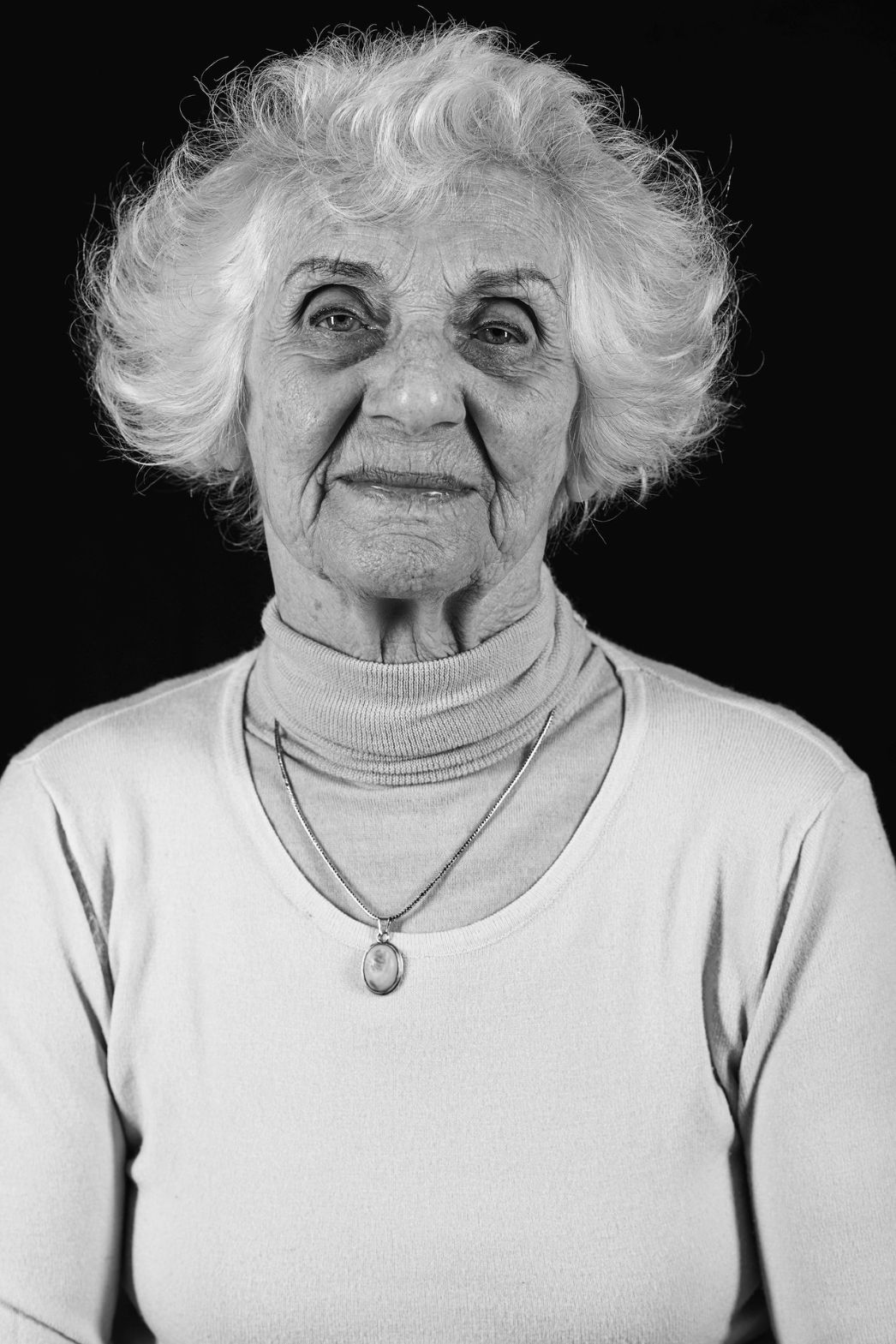
Éva Fahidi was born on 22 October 1925 in Debrecen, Hungary, as the daughter of the affluent middle-class timber merchant Desiderius Fahidi and his wife Irma Fahidi. In 1936 this Jewish family converted to Catholicism, and Éva and her sister attended the convent school. In the late 1930s ever stricter anti-Semitic laws were introduced, increasingly excluding the Jewish population from society. When the German Wehrmacht occupied Hungary in the spring of 1944 the Fahidi family was forced to move to the ghetto. In late June the Jewish population of the city was herded into a brick factory and deported to Auschwitz in several transports. The Fahidi family was in the last transport, on 27 June 1944, which took them to Auschwitz/Birkenau. On arrival Éva Fahidi was separated from her mother and sister, who were both murdered in the gas chambers. Her father died soon afterwards as a result of the conditions in the camp.
In mid August 1944 Fahidi was transported along with 999 other Hungarian Jewish women to a subcamp of Buchenwald Concentration Camp to carry out forced labour. At Münchmühle near Allendorf she was set to work producing shells.
While on a death march in March 1945 Fahidi was liberated by American troops; she returned to Hungary and worked in the export trade. She now lives in Budapest. She is a member of the Advisory Board of Former Inmates of Buchenwald Concentration Camp of the Buchenwald und Mittelbau-Dora Memorials Foundation, and of the International Committee of Buchenwald-Dora and Subcamps. In 2012 she was awarded the Order of Merit of the Federal Republic of Germany, and in 2014 was made an honorary citizen of Stadtallendorf.
Éva Pusztai works, in part together with the Buchenwald Memorial, to ensure that the fate of the Jewish women is not forgotten. Current social and political developments in Hungary give added impetus to her efforts to oppose any reinterpretation of the annihilation of the Hungarian Jews and to bring about the conviction and sentencing of the last surviving criminals from the Nazi concentration and extermination camps.


